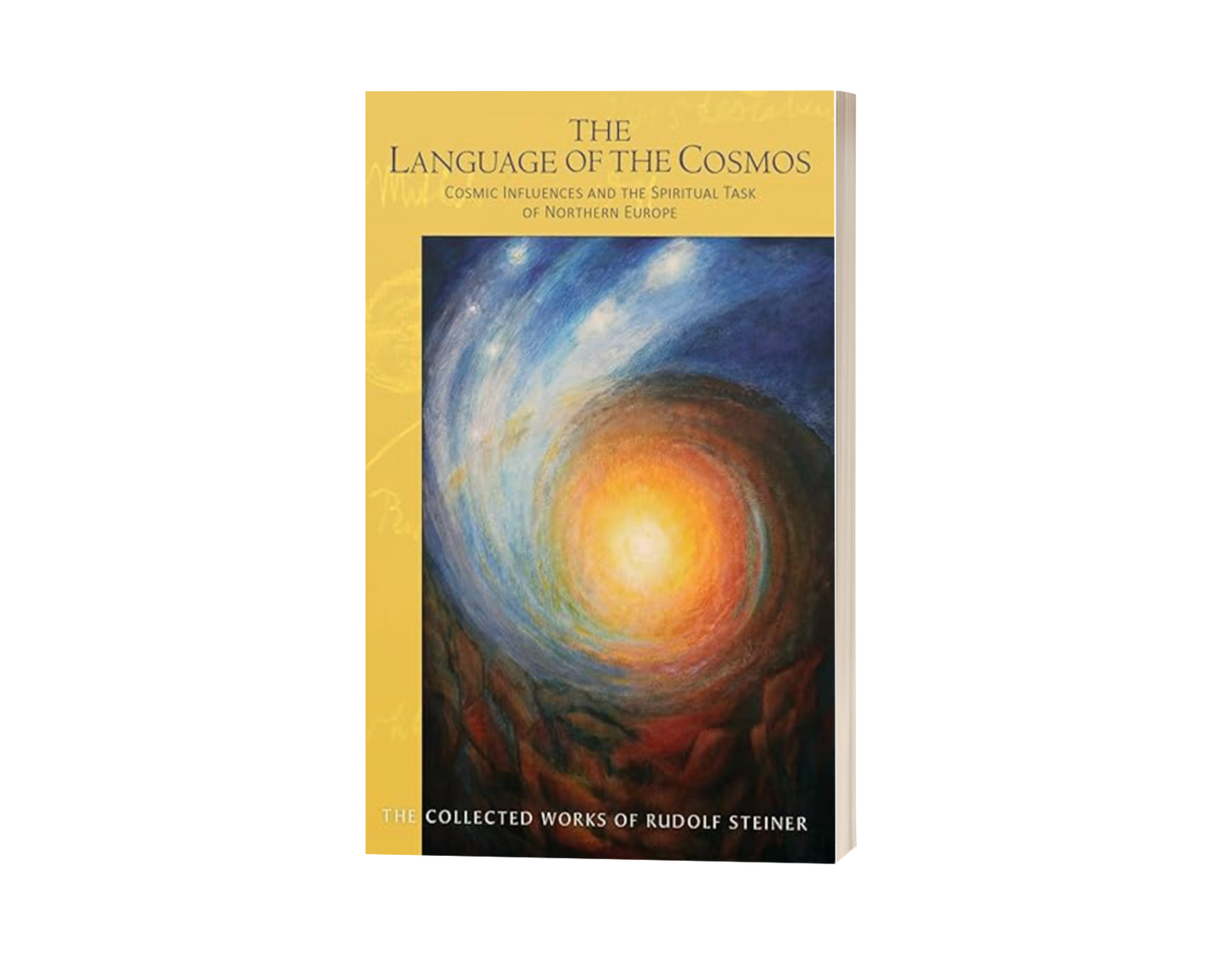The Language of the Cosmos
The Language of the Cosmos
Couldn't load pickup availability
11 lectures in various cities, Nov. 24–Dec. 31, 1921 (CW 209)
“We are in this sense-perceptible world from the time of waking up until the time of falling asleep. Our soul is filled with the impressions made upon us by this sense-perceptible world. Now, when we enter sleep, we are no longer on this side of the sense world...in reality, we are then inside the things, we are then on the other side of this sense tapestry. But human beings living in their earthly consciousness know nothing of this and dream up all sorts of things presumed to exist beyond the realm of sense perception. They dream up molecules and atoms; but these are only dreams―dreams of the waking consciousness.” ―Rudolf Steiner(lect. 2)
This previously untranslated volume in The Collected Works of Rudolf Steiner comprises eleven lectures given to members of the Anthroposophical Society in Norway, Germany, and Switzerland in November and December of 1921. In Rudolf Steiner’s biography, 1921 was a year of many trials. These lectures stand between the earth-shattering years of the First World War and the tragic destruction of the First Goetheanum. Indeed, precisely one year after the final lecture published in this volume, the Goetheanum―the house of the Word to which Steiner devoted all his forces―burned to the ground through an act of arson.
Though separated geographically, the lectures share a common thematic thread: the need for modern humanity, freely and out of inner initiative, to learn once again the language of the cosmos. This theme is taken up strikingly in the lecture of December 18, 1921, in which Steiner describes the spiritual reality of the human being not in familiar spiritual-scientific terms as consisting of physical body, etheric body, astral body, and “I,” but instead imbues these otherwise abstract designations with inner content―the physical body as an echo of the activity of zodiacal forces and expressed as cosmic consonants, while the etheric body reveals an echo of the weaving of planetary spheres in the realm of vowels.
This interplay of the planetary forces in vowels and the zodiacal forces in consonants―which accompany the soul on its descent to Earth―was once perceived instinctively by ancient humanity. It was understood that names are not given arbitrarily based on the whim of the parents but are designations that correspond to those planetary and zodiacal forces that played the greatest role in that individual’s path to earthly incarnation.
Abounding with penetrating insights, inspirations, and profound wisdom, this book speaks to all who seek a new understanding of humanity’s place in the universe.
This book is a translation from German by Agnes Schneeberg-de Steur of Nordische und mitteleuropäische Geistimpulse (2nd ed.), Rudolf Steiner Verlag, Dornach, Switzerland, 1982 (GA 209). Cover image: Schöpfung (Creation) by Ninetta Sombart (1925–2019), tempera on canvas, 55.5” x 112”. With gratitude to the Sombart family for their kind permission and to Thomas Spalinger, Raffael Verlag, for providing the image.


